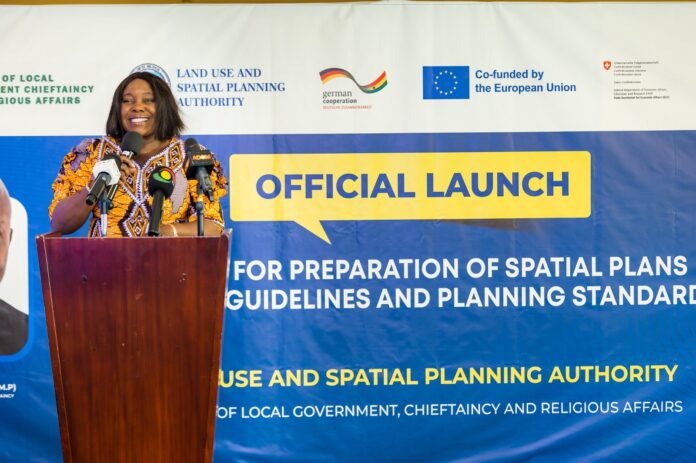Deputy Minister for Local Government, Decentralisation and Rural Development, Rita Naa Odoley Sowah, has urged all Metropolitan, Municipal, and District Chief Executives (MMDCEs) to fully adopt and apply the newly revised spatial planning guidelines to promote orderly and sustainable development across the country.
She made the call during the launch of the Revised Manual for the Preparation of Spatial Plans, Zoning Guidelines, and Planning Standards held in Accra.
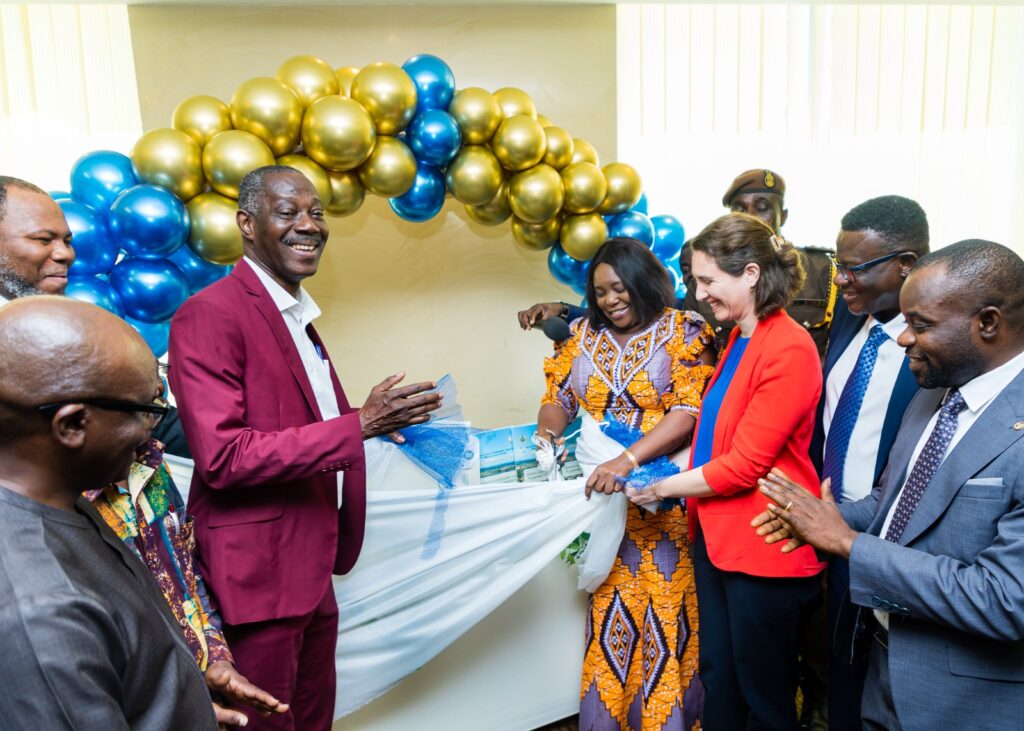
The Land Use and Spatial Planning Authority (LUSPA), operating under the Ministry of Local Government, Chieftaincy and Religious Affairs (MLGCRA), developed the revised manual as part of efforts to enhance coordinated, inclusive, and sustainable spatial development nationwide.
In her remarks, Madam Sowah emphasized that the adoption of the new manual is crucial to ensuring structured development and preventing unplanned settlements. She further encouraged all assemblies to integrate the guidelines into their local planning frameworks.
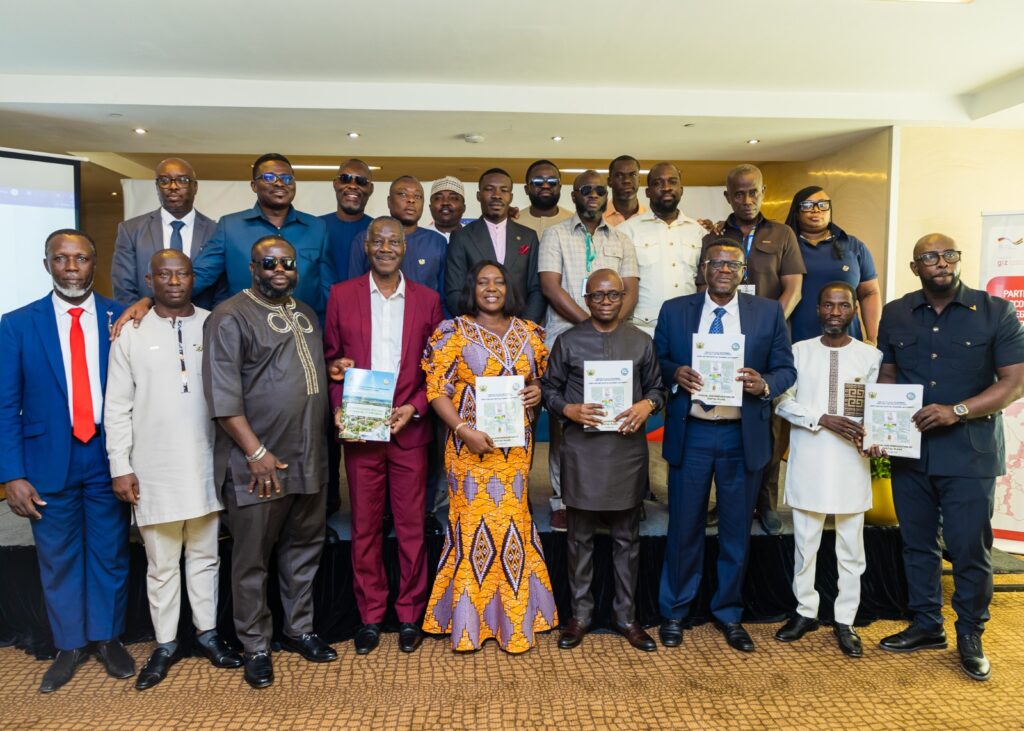
“I urge all MMDCEs to embrace and strictly apply these revised spatial planning guidelines. They provide a practical tool for achieving structured, sustainable, and people-centered development across our municipalities and districts,” she stated.
The Dean of Metropolitan, Municipal and District Chief Executives, Desmond Sowah Nai, speaking on behalf of his colleagues, pledged their commitment to implementing the manual to enhance local development outcomes.
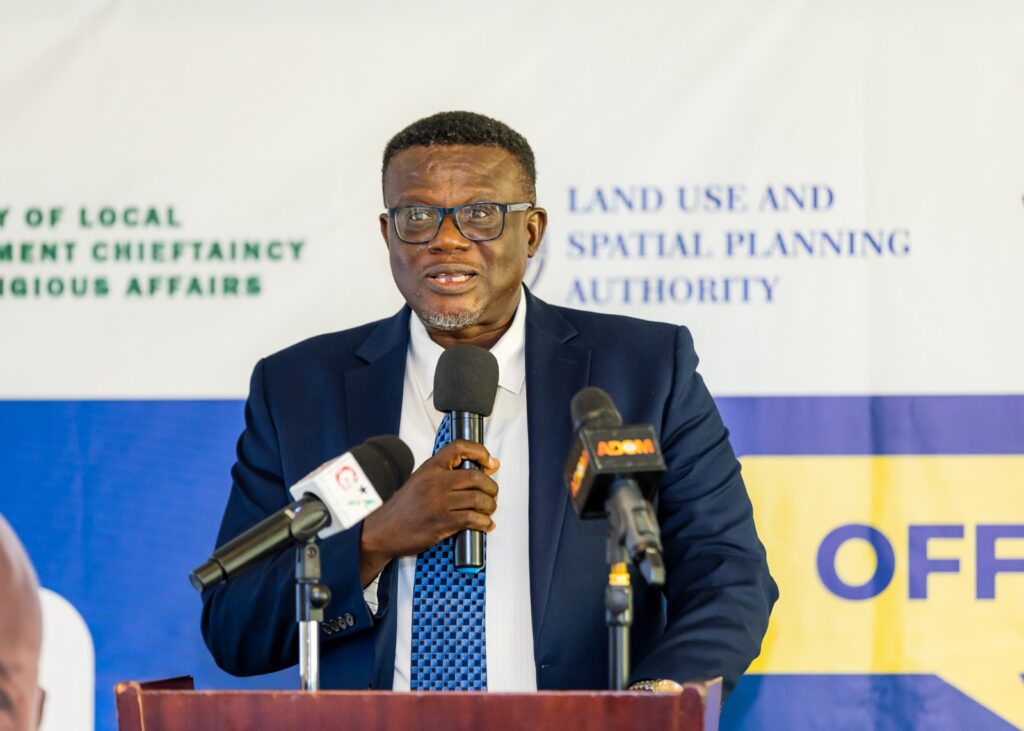
“We assure the Ministry of our full cooperation in applying the revised planning standards to achieve the intended results in our localities,” he noted.
On her part, Laetitia Erny, Component Manager of GIZ PAIReD, highlighted the organization’s financial and technical support to LUSPA in developing the revised manual. She expressed optimism that the document would serve as a catalyst for more effective urban planning and sustainable growth in Ghana.
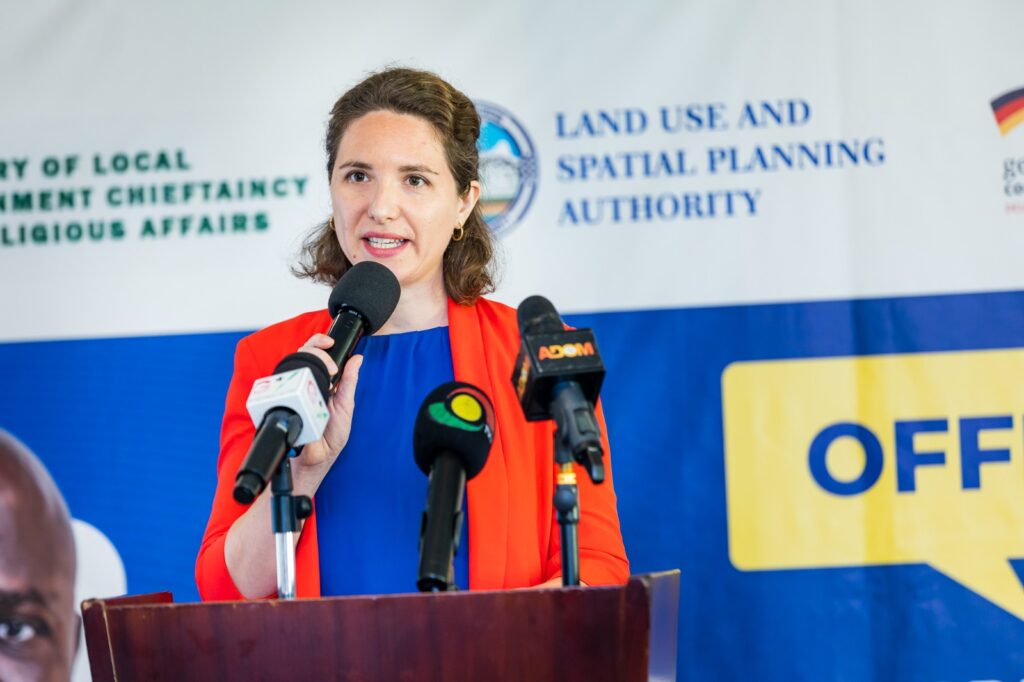
“GIZ is proud to have supported this initiative. We believe the revised manual will guide planners and local authorities to make better decisions that shape the future of Ghana’s towns and cities,” she said.
The launch marks a significant step forward in Ghana’s spatial planning reforms, aimed at promoting well-coordinated land use, efficient infrastructure development, and enhanced environmental management.
Source: Prince Owusu Asiedu
ALSO READ:

